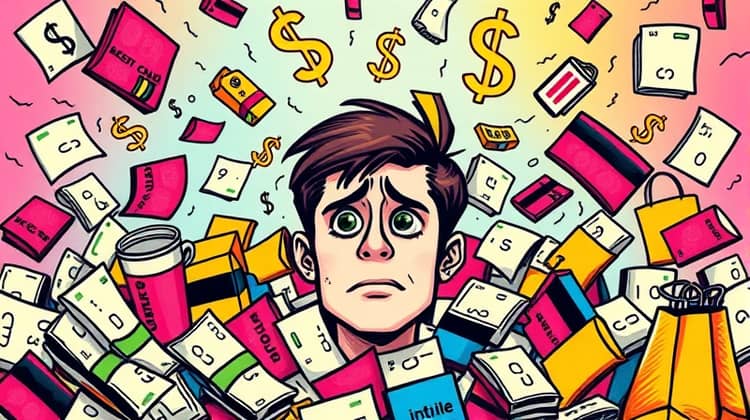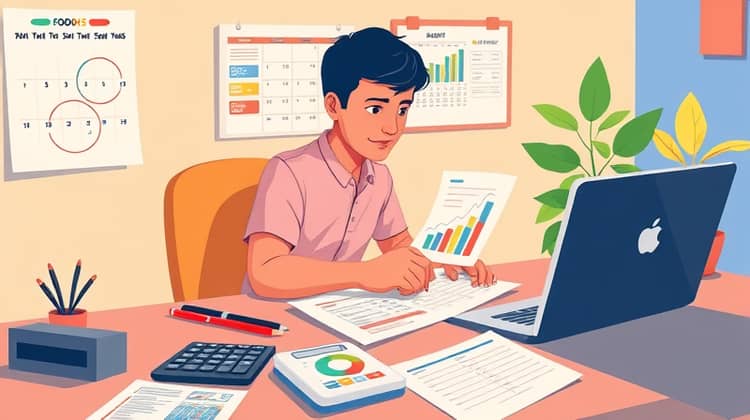Managing credit card debt is a crucial skill in today's economy, where credit cards are used by millions of consumers to make purchases, manage cash flow, and build credit history. However, the ease of use can often lead to overspending and drowning in high-interest debt. Learning to manage this debt effectively is essential for financial health and achieving long-term economic stability.
Many people find themselves in situations where they owe more on their credit cards than they can repay, leading to stress and anxiety. Understanding the nature of credit card debt is the first step toward regaining control. Knowledge of what factors contribute to credit card debt and how it can affect your personal finances can empower you to make better financial decisions.
In this article, we will explore some practical tips for managing credit card debt, including budgeting strategies, payment approaches, and options for professional assistance. With determination and the right mindset, it is possible to reduce your debt and pave the way for a more secure financial future.
Understanding Credit Card Debt

Credit card debt arises when individuals use their credit cards to make purchases without paying off the full balance at the end of each billing cycle. Interest rates on credit cards can be significant, often exceeding 15% to 20%, which means that failing to pay the balance in full leads to higher amounts owed over time. This compound interest can cause debt to spiral out of control if not managed properly.
Many people underestimate how quickly credit card debt can accumulate. A few small purchases may seem manageable, but without careful oversight, they can become burdensome. Additionally, with the temptation of rewards, cash back, and promotional offers, it can be easy to overspend and fall deeper into debt.
Understanding the implications of high-interest debt is critical. If you only pay the minimum payment required, you may remain trapped in a cycle of debt for years, limiting your financial freedom and growth. It's vital to recognize the signs of unhealthy debt accumulation and take proactive steps to address these issues.
- Credit card debt can affect your credit score negatively.
- Making only minimum payments leads to prolonged debt repayment.
- High-interest rates can turn small purchases into large debts over time.
Tips for Managing Credit Card Debt

Managing credit card debt requires a multifaceted approach that considers both immediate actions and long-term financial habits. Starting with a clear understanding of your current financial situation can set the foundation for a more effective debt management strategy. Knowing exactly how much you owe, how much interest you are being charged, and your overall budget can help in making informed decisions regarding repayments.
Creating a solid plan involves not only paying down existing debt but also ensuring that you do not accumulate more in the future. Here are several strategies that can assist in effectively managing and reducing your credit card debt.
1. Create a Budget
A budget is an indispensable tool for managing your finances, particularly if you are trying to pay down credit card debt. Start by evaluating your income and expenses, clearly outlining fixed costs like rent, utilities, and groceries, as well as variable expenses. This holistic view of your financial situation allows you to identify areas where you can cut back and allocate more resources toward debt repayment.
Once you have established a budget, stick to it diligently. This discipline can prevent additional charges on your credit card and set you on a path to becoming debt-free. Use budgeting tools or apps to help manage your finances if necessary.
- Track your spending to see where your money goes.
- Identify unnecessary expenditures to cut back on.
- Allocate a specific amount each month to contribute toward debt repayment.
Regularly review and adjust your budget as needed. Life circumstances change, and your financial strategies may need to adapt accordingly to remain effective.
2. Pay More Than the Minimum
Relying on the minimum payment can result in paying off your debt over many years. Credit card companies generally require only a fraction of your total balance every month to keep you in good standing, but this can significantly lengthen your repayment period and increase overall costs due to interest. Instead, aim to pay more than the minimum whenever possible.
Even small increments above the minimum can lead to significant savings in interest payments and accelerate the payoff process.
3. Focus on High-Interest Debt
When tackling credit card debt, it’s beneficial to prioritize repayments based on interest rates. Often, credit cards carry various rates, with some being higher than others. By focusing on paying down the debt with the highest interest rate first, you can minimize the interest you pay over time and prioritize your financial resources effectively.
Repaying high-interest debt first can save you a lot of money in the long run, allowing you to pay off lower-rate cards later once the higher rates are addressed.
4. Consider Debt Consolidation
Debt consolidation involves combining multiple debts into a single loan with a fixed interest rate. This strategy can simplify debt management by allowing you to focus on a single payment instead of multiple credit card bills. Sometimes, debt consolidation loans come with lower interest rates than your existing credit cards, helping to reduce your overall payment burden.
Research various debt consolidation options to find the best solution for your situation, as the terms and interest rates can vary.
- Personal loans for debt consolidation from banks or credit unions.
- Credit card balance transfer offers with lower introductory rates.
- Home equity loans or lines of credit for secured borrowing.
However, be cautious with debt consolidation; it does not eliminate debt but reshuffles it. Ensure that you are committed to changing spending habits to avoid accruing more debt.
5. Negotiate with Creditors
If you are struggling with high credit card debt, reaching out to creditors may lead to better repayment terms. Many creditors are willing to negotiate lower interest rates, especially if you explain your financial situation honestly. They may also offer hardship programs that can modify your payment plans for a determined period.
Before negotiating, do your research to know what options might be available and be prepared to present your case to your creditor.
- Request a lower interest rate on your current balance.
- Inquire about hardship programs or payment plans.
- Ask if they can remove late fees or offer other concessions.
Negotiating can lead to significant long-term savings, but it requires effort and discipline to follow through. Be patient and persistent in your discussions, and do not hesitate to ask for what you deserve to make your repayment journey manageable.
6. Avoid Accumulating More Debt
As you work on managing existing credit card debt, it’s crucial to avoid creating new debt. This requires a lifestyle change and developing new spending habits. Consider using cash or debit for purchases instead of relying on your credit cards. This adjustment can help curb impulsive buying and keep you from accruing additional balances.
Additionally, learn to distinguish between needs and wants. Prioritizing necessary expenses will make it easier to control overall spending and keep you focused on paying down your existing debts.
7. Seek Professional Help
If your debt feels overwhelming despite your best efforts, seeking help from a financial advisor or credit counseling service can provide guidance and support. These professionals can evaluate your financial situation and offer tailored advice to help you manage your debt effectively.
Credit counseling can also help negotiate with creditors on your behalf, which can result in better repayment terms and structured payment plans.
8. Build an Emergency Fund
Creating an emergency fund is a crucial step toward financial stability and helps prevent falling back into debt. Unexpected expenses can arise any time, and having a financial cushion can reduce the likelihood of using credit cards for unplanned expenses.
Aim to save enough to cover at least three to six months’ worth of expenses, which can offer peace of mind and a buffer during tough times.
- Start with a small amount and gradually increase your savings.
- Set up automatic transfers to your savings account to build your fund consistently.
- Use windfalls (like tax refunds or bonuses) to boost your emergency fund.
Developing an emergency fund not only provides security but also allows you to focus on paying down existing debt without the fear of further financial strains. Ultimately, it's an essential aspect of a robust financial plan that contributes to long-term fiscal health.














